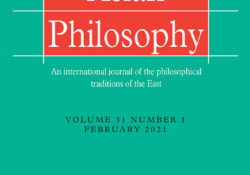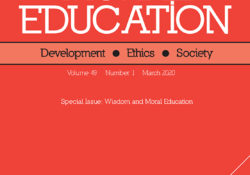tandfonline.com har udgivet en rapport under søgningen „Teacher Education Mathematics‟: ABSTRACT ABSTRACT This paper discusses the Buddhist threefold model of wisdom which, on the basis of ethics, progresses from ‘study,’ to ‘reflection,’ to ‘cultivation,’ and argues that mindfulness plays a critical role at each of these steps, forming the common thread joining them together. Beyond opposing statically the mnemonic, conceptual, and attentional dimensions of mindfulness, this threefold paradigm of ‘mindful wisdom’ can serve to articulate them dynamically within the context of the path. The model is first examined with special consideration of Mahāyāna sources and its relation to the epistemic foundations of tradition, reason, and direct experience. Then, in reference to living Tibetan and Himalayan traditions, each step of wisdom is shown to rely upon a distinct aspect of mindfulness… Continue Reading →
Like this:
Like Loading...
tandfonline.com har udgivet en rapport under søgningen „Teacher Education Mathematics‟: ABSTRACT ABSTRACT Teaching is a highly complex profession, one in which teachers have to make continuous pedagogical decisions. In this study, we argue that practical wisdom is needed in order to act thoughtfully and effectively. The prerequisite for using practical wisdom is teachers’ awareness of the pedagogical beliefs behind the decision-making. In this study, this has been described as personal practical theories: PPTs. In other words, practical wisdom is possible if PPTs are consistent with pedagogical decision-making and furthermore teaching practice. The aim of this study is to seek the ways teacher education may support the cultivation of practical wisdom in student teachers. For that purpose, we carried out a qualitative descriptive study by interviewing 15 primary school student teachers… Continue Reading →
Like this:
Like Loading...
tandfonline.com har udgivet en rapport under søgningen „Teacher Education Mathematics‟: ABSTRACT ABSTRACT This essay introduces the present special issue on wisdom and moral education, which draws on a conference held in Oxford in 2017. Some of the seven contributions (by Sanderse; Ferkany; and Hatchimonji et al.) make use of the Aristotelian concept of phronesis, or practical wisdom, while others focus more on the wisdom concept as it has developed in contemporary psychology (Huynh and Grossman; Ardelt; and Brocato, Hix and Jayawickreme). One (by Swartwood) straddles the distinction between the two. All the contributions, however, address in different ways practical questions about how wisdom can be evaluated and how it relates to issues of moral development and education. Link til kilde
Like this:
Like Loading...


